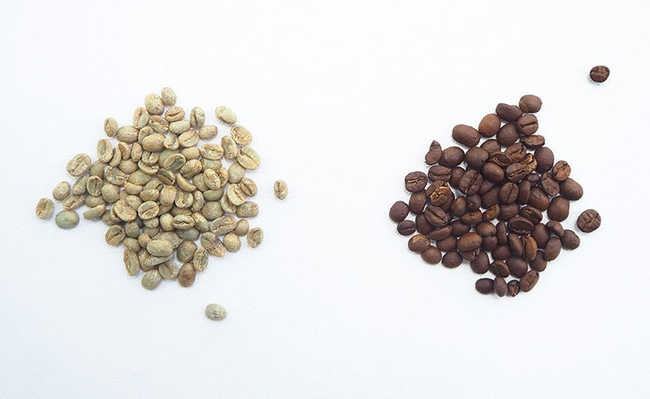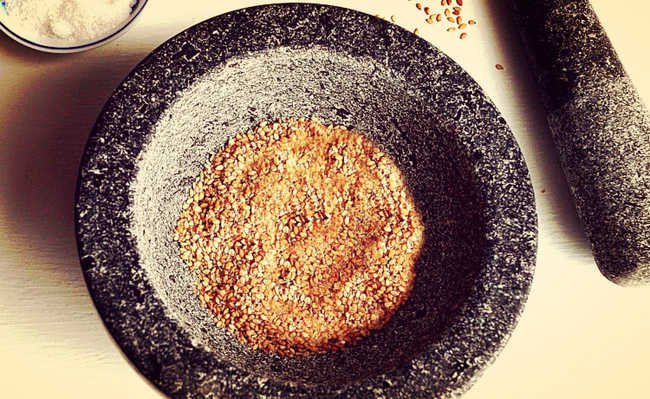Grape: check out six unmissable benefits
Grapes and wine made from them contain substances that are beneficial to health. Understand

Dane Deaner edited and resized image is available on Unsplash
The grape is the fruit of the plant whose scientific name Vitis sp. It is estimated that its cultivation began between 6,000 and 8,000 years ago in the Middle East - and was mainly aimed at the production of alcoholic beverages such as wine.
- Regeneration: organic wine will have part of the income earmarked for reforestation in Argentina
Later, the cultivation of various types of grapes spread across Europe, North Africa and parts of America, including the southern part of Brazil.
This fruit grows best in temperate climate regions and has several species, including the Vitis vinifera, labrusca vitis, riparian vitis, vitis rotundifolia and Vitis aestivalis.
Due to the amount of nutrients and antioxidants it carries, grapes can provide health benefits such as preventing cancer and other chronic diseases. Understand!
Grape Benefits
1. Rich in nutrients
Grapes are rich in several important nutrients. A glass containing 151 grams of red or green grape contains:
- Calories: 104
- Carbohydrates: 27.3 grams
- Protein: 1.1 grams
- Fat: 0.2 grams
- Fiber: 1.4 grams
- Vitamin C: 27% of the Recommended Daily Intake (RDI)
- Vitamin K: 28% of the RDI
- Thiamine: 7% of the IDR
- Riboflavin: 6% of the IDR
- Vitamin B6: 6% of the RDI
- Potassium: 8% of the IDR
- Copper: 10% of the IDR
- Manganese: 5% of the IDR
A glass of grapes provides more than a quarter of the RDI of vitamin K, which is vital for blood clotting and bone health (see study here: 1). Grapes are also a good source of vitamin C, an essential nutrient and powerful antioxidant necessary for connective tissue health and collagen formation (see study about it here: 2).
- Foods rich in vitamin C
2. Prevents chronic diseases
Grapes are rich in antioxidants, which are powerful substances in fighting chronic diseases such as diabetes, cancer and cardiovascular disease. Studies have identified over 1,600 beneficial plant compounds in grapes (see studies here: 3, 4).
- Antioxidants: what are they and in what foods to find them
The highest concentration of antioxidants is found in the husk and seeds. For this reason, most research on grapes has been done with seed and skin extracts.
Using grape seed oil is one way to enjoy these benefits. Learn more about it in the article: "Grape seed oil: benefits and how to use it".
Another way to take advantage of the antioxidants present in grapes is to consume wine in moderation. A study showed that anthocyanins, antioxidant substances that give grapes a reddish hue, are still present in wine even after fermentation.

Edited and resized image by Kelsey Knight is available on Unsplash
- Anthocyanin present in red fruits brings benefits
One of the antioxidants found in wine is resveratrol, which can protect against heart disease, lower blood sugar and prevent the development of cancer (see study about it here: 5).
- Organic wines offer more safety for consumer health and less impact on the environment
Vitamin C, beta-carotene, quercetin, lutein, lycopene and ellagic acid found in grapes are also powerful antioxidants (see study about it here: 6).
3. Prevents cancer
The resveratrol found in grapes and wine made from them can prevent the development of cancer (see study about it here: 6).
- Wine consumption and health: the benefits of resveratrol and the dangers of sulphite
Its cancer prevention potential is due to its ability to reduce inflammation, slowing the growth and spread of cancer cells in the body (7).
In addition to resveratrol, grapes contain quercetin, anthocyanins and catechins - all of these compounds can have beneficial effects against cancer (see the study about it here: 8).
Grape extracts blocked the growth and spread of human colon cancer cells in test tube studies (see studies here: 9, 10).
In addition, a study of 30 people over the age of 50 showed that eating 450 grams of grapes a day (which is quite a lot) for two weeks decreased colon cancer risk markers (see study here: 11).
Other studies have concluded that grape extract blocks the growth and spread of breast cancer cells, both in laboratory models and in mice (see studies here: 12, 13, 14).
Although studies on grapes and cancer in humans are limited, a diet rich in foods rich in antioxidants, such as grapes, has been associated with a lower risk of cancer (see study on this: 15).
4. Good for the heart
There are several reasons why eating grapes is good for your heart. Among them are the reduction of blood pressure and LDL cholesterol, considered bad.
A glass of grapes contains 288 mg of potassium, which is 6% of the RDI. This mineral is needed to maintain healthy blood pressure levels. Low potassium intake has been linked to increased risk of high blood pressure, heart disease and stroke (see study about it here: 16).
- Does altered cholesterol have symptoms? Know what it is and how to prevent it
A study of 12,267 adults showed that people who consumed higher levels of potassium in relation to sodium were less likely to die from heart disease than those who consumed less potassium (see study here: 17).
Another study, conducted on 69 people with high cholesterol, showed that consuming three cups (500 grams) of red grapes a day for eight weeks lowered total LDL cholesterol. White grapes did not have the same effect (see study here: 18).
5. Protects against diabetes
Grapes contain 23 grams of sugar per cup (151 grams), which may raise doubts if they are really good for preventing diabetes. However, they have a low glycemic index (GI) of 53, which causes blood sugar levels not to rise quickly.
- What is the Glycemic Index?
In a 16-week analysis of 38 men, it was shown that those who took 20 grams of grape extract a day had reduced blood sugar levels compared to a control group (see study here: 19).
In addition, resveratrol has been shown to increase insulin sensitivity, which can improve the body's ability to use glucose and consequently lower blood sugar levels (see study here: 20).
Resveratrol also increases the number of glucose receptors on cell membranes, which may have a beneficial effect on blood sugar (see study on this: 21).
6. Good for the eyes
The plant chemicals found in grapes can protect against common eye diseases.
In one study, mice fed a grape-supplemented diet showed fewer signs of retinal damage and had better retinal function compared to mice that were not fed the fruit (see study here: 22).
In a test tube study, resveratrol protected retinal cells in the human eye against the effects of ultraviolet A (UVA) light. This can reduce the risk of developing age-related macular degeneration (see study about it here: 23).
According to a review study, resveratrol may also help protect against glaucoma, cataracts and diabetic eye disease.
In addition, grapes contain the antioxidants lutein and zeaxanthin. Several studies have shown that these compounds help protect the eyes from damage caused by blue light (see study about it here: 24).
Learn more about blue light in the article: "Blue light: what it is, benefits, harm and how to deal with it".










